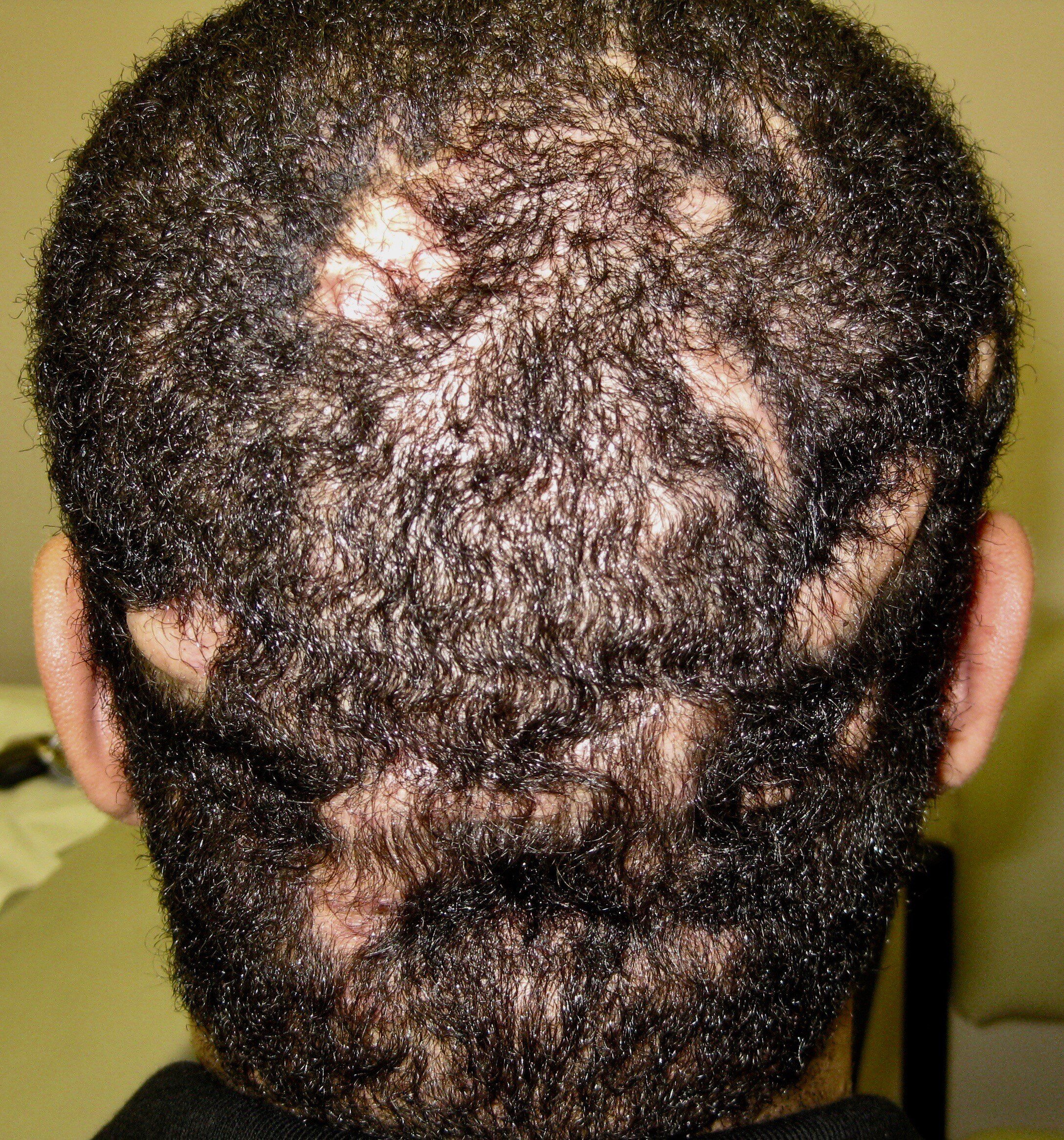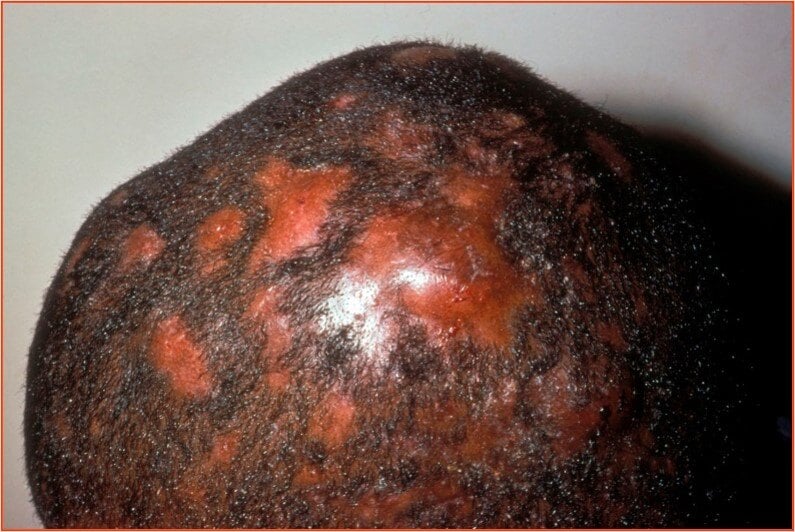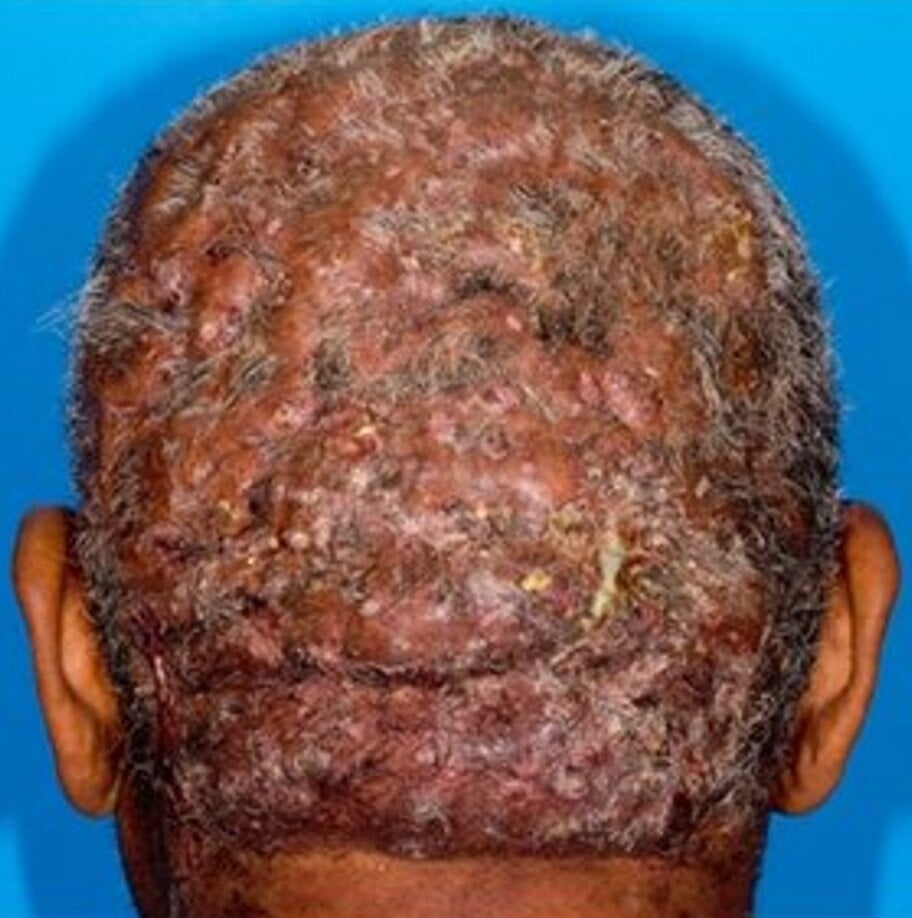Dissecting Cellulitis

What is Dissecting Cellulitis?
Dissecting cellulitis is a rare and long-lasting condition that affects the hair follicles on the scalp. It's also called dissecting folliculitis or perifolliculitis capitis abscedens et suffodiens. The condition causes painful, sometimes fluid-filled bumps, which can connect and drain pus over large areas of the scalp. It tends to get worse over time, leading to scarring and significant hair loss.
Symptoms & Causes

Dissecting cellulitis is part of a group of disorders that also includes acne conglobata and hidradenitis suppurativa. It usually only affects the scalp hair follicles. The problem starts when there's a buildup of oil and dead skin cells in the hair follicles, which leads to inflammation and the follicles bursting. Some think the condition might be due to an unusual response to bacteria, but there’s no clear evidence of a weakened immune system or infection elsewhere on the skin.
It mostly affects dark-skinned men in their 20s to 40s and often starts at the back of the scalp or the crown. It’s marked by painful bumps, pus-filled areas, and scarring, which can cause extensive hair loss.
Diagnosis & Treatments

Doctors usually diagnose dissecting cellulitis through a detailed history, scalp examination, bacterial cultures, and a scalp biopsy. The biopsy helps determine the type and pattern of inflammation and whether there are any bacteria present. A culture from a pustule or scalp tissue can guide the treatment plan, and a fungal culture might be done to rule out other infections.
Early diagnosis and treatment can help prevent permanent damage and sometimes allow for hair regrowth. Treatment can be challenging, and while antibiotics might help if a bacterial infection is present, oral isotretinoin may be used otherwise. However, treatment often needs to be long-term because the condition can come back after stopping medication.
Recently, medications like infliximab and adalimumab, which target specific inflammatory responses, have shown promise. Still, relapses are common when treatment stops, and surgery might be needed along with long-term medication.
